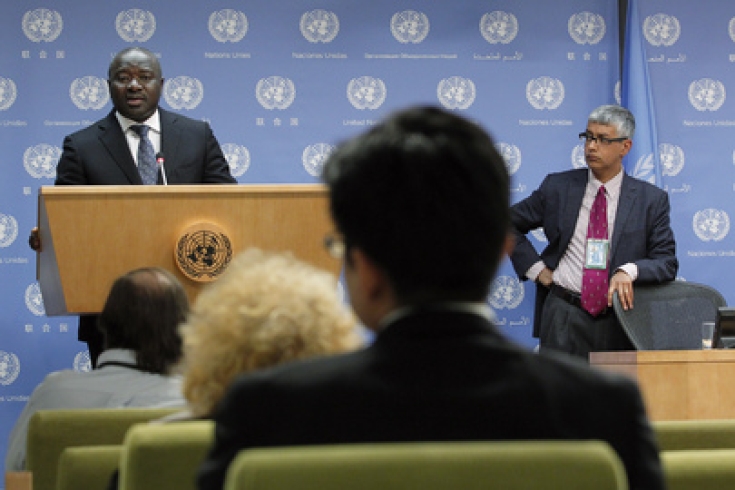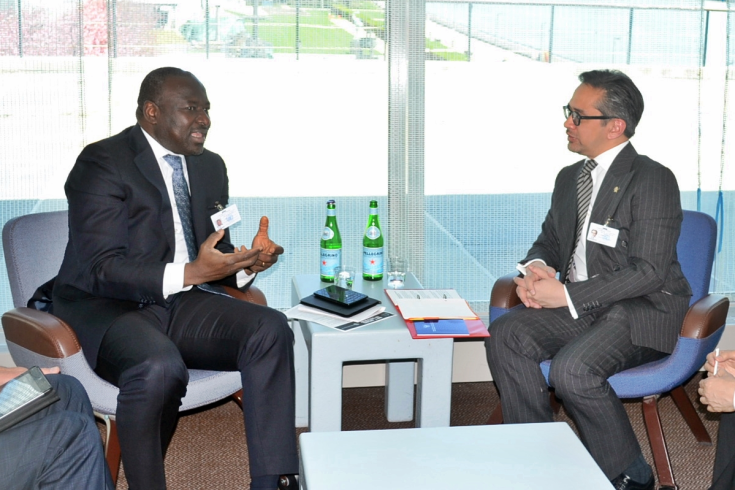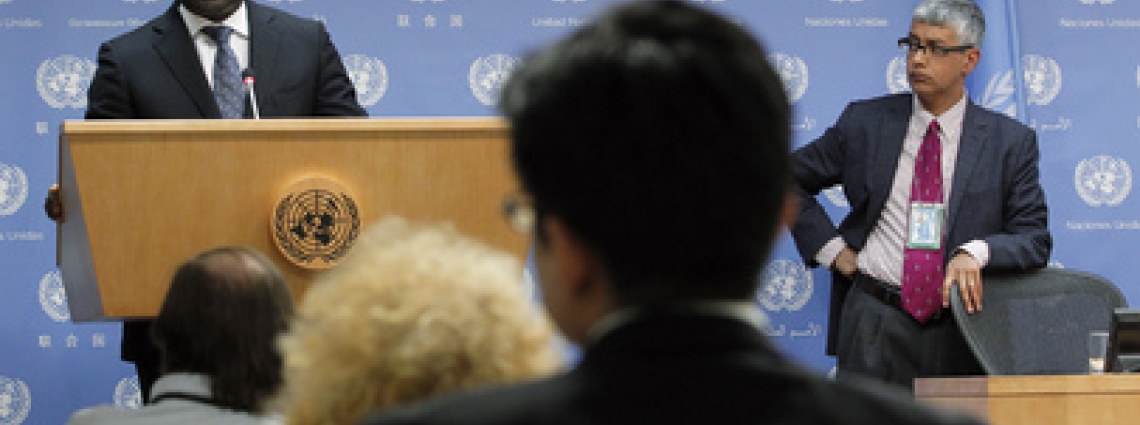NPT PrepCom: CTBTO head urges DPRK to refrain from nuclear testing and affirms that no nuclear test will go undetected

UN noon briefing on 28 April 2014 with Zerbo (left) and Farhan Haq, Deputy Spokesperson for the UN Secretary-General. Image: UN Photo/JC McIlwaine.
Should the DPRK deliver on its threat to conduct another nuclear test, I am fully confident that our system will detect any type of event successfully. BUT, I wish to use this opportunity to call on the North Korean government to refrain from any future testing, and in the context of resume negotiations impose a test moratorium pending signature of the CTBT.
Atmospheric Transport Modelling was used to backtrack radioactivity from the station at Takasaki, Japan, to the DPRK nuclear test site. Click for video.
But while States continue to ‘say yes’ to the Treaty and a world without nuclear tests, expressing this sentiment is not enough. More States need to not just say “no” to nuclear tests, but “never”.
Eloquent expressions of support for the CTBT and its entry into force within the NPT review process and other multilateral fora will not suffice to ensure a future for the Treaty and the CTBTO. It is time to put words into action, and action into results.
The new Executive Secretary of the CTBT recently established a ‘Group of Eminent Persons’ to help Member States facilitate the Treaty’s entry into force. Italy is strongly involved in this exercise. The Italian Minister of Foreign Affairs, Ms Federica Mogherini, as a member of this Group since its establishment, attended the last meeting in Stockholm on 10 to 11 April 2014.
The NPT was designed to prevent the spread of nuclear weapons and weapons technology, to further the goal of nuclear disarmament and general and complete disarmament, and to promote cooperation in the peaceful uses of nuclear energy.
Zerbo addressed the NPT PrepCom on 29 April, highlighting the "clear linkages between the CTBT and the NPT" and their mutually reinforcing nature - full statement ( PDF ).
The 2015 NPT Review Conference will be a pivotal moment for self reflection among States Parties, international organizations and civil society alike. We must utilize all opportunities that arise to further our goals, and resist the temptation to make compromises on our core objectives. Let’s not look back at this Conference in years to come, and ask why more was not done to proactively advance one of the longest sought prizes in nuclear arms control: a global, verifiable and non-discriminatory nuclear test ban.
Zerbo also held bilateral talks with U.S. Under Secretary for Arms Control and International Security, Rose Gottemoeller. In her statement to the NPT PrepCom, Goettemoeller said "The entry into force of the CTBT remains a top priority for the United States. We are working to educate the American public on the security benefits of the Treaty, as well as the dangerous health effects of explosive testing."
The Executive Secretary further met with Angela Kane, UN High Representative for Disarmament Affairs and with Kevid Rudd, former Prime Minister of Australia and member of the Group of Eminent Persons (GEM).
On 30 March, Zerbo gave the keynote speech at a seminar on The CTBTO and its Verification System: Current Challenges and Future Directions at the Belfer Center for Science and International Affairs, John F. Kennedy School of Government, Boston, USA.

Indonesian Foreign Minister Marty Natalegawa (right) discussing with CTBTO Executive Secretary Lassina Zerbo
29 Apr 2014
